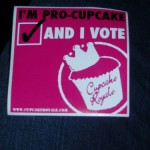 Ever open one of those Publishers’ Clearinghouse envelopes? Remember the little stickers with magazine covers that you had to paste on your return form? And all the pieces of paper in the envelope? A letter, the stickers, small slips of paper, “handwritten” notes.
Ever open one of those Publishers’ Clearinghouse envelopes? Remember the little stickers with magazine covers that you had to paste on your return form? And all the pieces of paper in the envelope? A letter, the stickers, small slips of paper, “handwritten” notes.
It may seem a bit silly to include all that stuff. It made the envelope thicker, it was harder to mail, and cost more in postage.
The Method in the Madness
All those stickers and bits of paper were involvement devices; designed to engage the recipient and increase her commitment to returning the form, buying magazines, or entering the contest.
How You Can Engage Your Customers
The involvement devices have evolved since the early days of direct mail (though those stickers are still there), but the principle is the same.
Instead of stickers, we have baseball teams inviting fans to buy bricks for the walkway outside a new stadium, and inscribe them with personal messages. Fans of the Stephanie Plum mysteries are encouraged to make their own videos and upload them. Email newsletters sent by video game producers run contests and give tips on playing the games.
More Involvement Equals More Interest
The more involvement, the greater the identification with the company, the brand, and the more enthusiasm when a new game, or a “real” movie comes out.
You can engage your own customers by asking for opinions, inviting video feedback, running contests, or asking for your customers’ votes on a new logo or new product.
Oh, and those little stickers still work.
P.S. Since this is an involvement post, I’d like yours. What have you done to engage your customers? Did it work? Share it here.

I have a bit of a weird question,
but I’ve been looking EVERYWHERE for one of those Publisher’s Clearing House sticker sheets. (I need one for a project) It’s proving impossible to find, I know it’s a long shot but do you have any idea where I might find one?
Wow. That’s a tough one. The only thing I can think of is to contact them and ask.
http://www.pch.com/infocenter/askus/askus.shtml